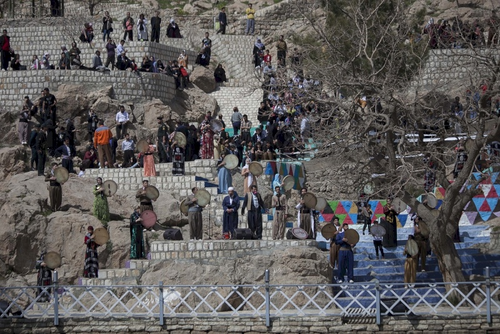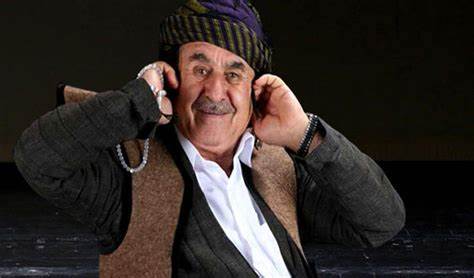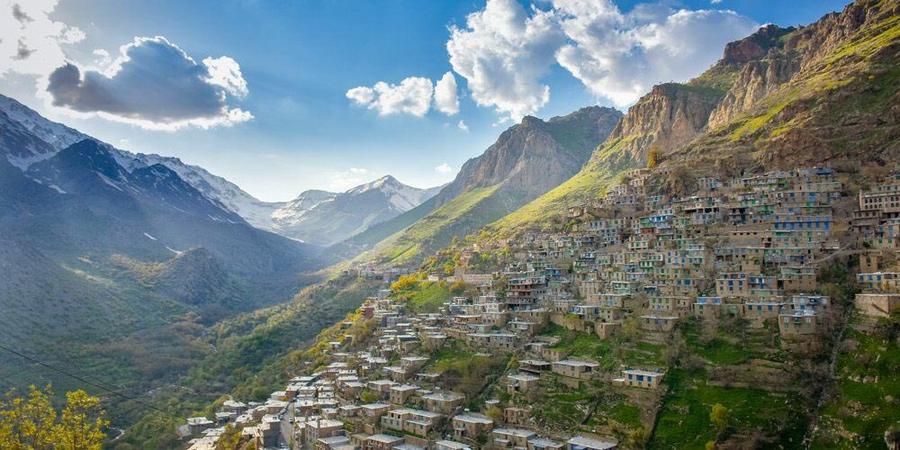Siachamana is a part of the Kurdish songs that originated from Hawraman with deep roots in our nation's art and ancient history. Siachamana is a live part of Hawraman's identity.
There are several different viewpoints about Siachamana which will be mentioned in the following paragraphs in detail. The history of this kind of song will also be pointed out.
Some historians and experts say the word "Siachamana" comes from the Mithra era and it spread out in the Hawraman region. There were some Moghs (Mithra clergymen) during the Mithra era who used to wear black clothes to show they were not ordinary people. The reason for showing their difference was like nowadays social class differences and those Moghs or black-suit men were known as "Siajamana" (Sia means black and Jamana means clothes). These Moghs had their particular anthems like religious texts to express their prayers in the form of a song. This form of expressing prayers in the form of a song came to be known as Siajamanakan which means the songs that are particularly sung by the black-suit men and Siachamana is the short form of Siajamanakan.
There is another view about Siachamana and those who believe in this idea say that Siachamana is an original Hawrami word and it comes from the love of a girl and a boy. The word particularly means a person who has black eyes (Sia means black and Chamana means eyes).

Siachamana has an ancient history and the experts and historians believe that its history traces back to the time when history was not found in written form. Siachamana is particular to Hawraman and it is the only place where this form of song has been sung (in Kurdish language they even use a particular word for singing Siachamana which is Chrin). According to Avesta's text, the great Hawraman i.e., from Lorestan to Mosul, people used to sing Siachamana. Especially in the region still called Hawraman (Hawramana Takht and Lihon) this song was more popular. The reason for the popularity of this kind of song in the Hawraman region is that this area was the center of Hawraman and if we pay more attention to the history, we can see that both Mithra and Mazd Yasna religions originated in the great Hawraman and the religious temples of these religions were in this area, thus, their religious songs also must have come from this area. The geography we mentioned is the place where Siachamana was born.
Siachamana, like other forms of Kurdish songs, has not been able to expand its geographical territory. Every part of Kurdistan possesses its particular form of singing style and like Siachamana those forms of songs have not expanded their regional territory and have been kept in that particular area. The reason behind this is that Kurdistan occupiers have constantly attempted to ban or cause obstacles for those who sang these songs, so, unfortunately, none of these singing styles have become a national singing style.
Siachamana and its lyrics are various and each of them possesses different parts. The subject of Siachamana is mostly patriotism, love, social norms, and Mystics however, there are Siachamana songs that are about nature which indicates that Kurds have always been a nation who were never afraid of nature which is reflected in Siachamana lyrics. It is worth mentioning that Siachamana has more than 80 melodies.

Everyone can hear Mystic contents of Siachamana. When this subject is mixed with Siachamana lyrics, the message one can hear is full of divine ideas to ponder upon.
As an oral literature, Siachamana has had a great impact on the written literature, especially Molavi Kurd's poems and the poets after him have benefited from Siachamana a great deal.
The stories sung in Siachamana, talk about an old mythic history which later combine with myths because the narrations become more prominent and significant.
Siachamana is sung without any musical instrument. Those who sing Siachamana can be heard like a partridge in high mountains.
However, this ancient and historical Kurdish song which is a part of Kurdish identity is threatened to grow weaker and less popular. Those who compose Siachamana and sing them have grown less than before because they are getting older and the young generation is not working on these songs.








